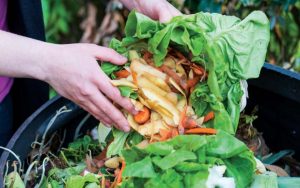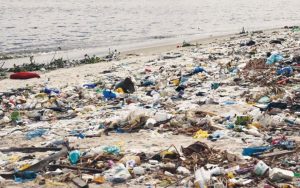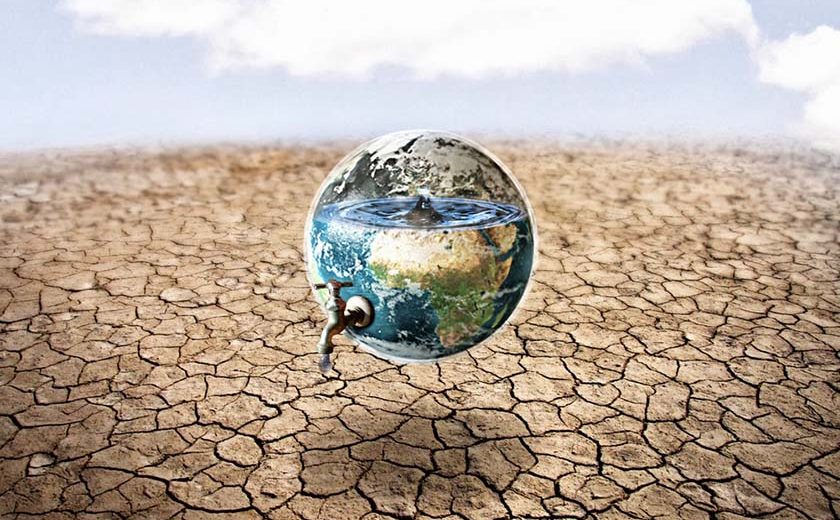If you thought climate change is just bad for the planet’s health, you’re wrong because it’s bad for people too. Water problems may vary by age, gender, geography and socioeconomic status, but the remedies will be the same.
We speak to World Economic Forum Expert Network, Climate Reality Leader and goals-driven environmentalist, Dr Renard Siew on water woes and how it affects one’s health
Malaysians use a daily average of 248 litres of water per person, almost twice the World Health Organisation’s (WHO) recommended 125 litres.
“It implies that we are generally quite a wasteful society. In fact, it’s interesting to see that people are willing to pay RM15 for a cup of Starbucks coffee but when there’s a proposal to raise water tariffs by even 5 sen people get agitated. I think what that says is that we have a tendency to see water as an infinite resource and don’t treat it as a commodity or valuable resource.”
Not mincing his words on Malaysians taking water that comes out of their taps for granted, Siew said the negative effects can already be seen in both rural and urban areas.
He said rural people were largely involved in the agricultural sector which has high dependency on water for irrigation.
“So, when we experience prolonged droughts and water shortages, crop yields tend to decline significantly which affects their main source of income. Exponential growth of human population coupled with the fact that with urbanisation people are moving out of rural areas and staying away from agriculture, there will come a time when we might just run out food and starvation will become a very real issue. We also have cases of rivers on the verge of drying up in Malaysia which is really bad news for our local fishermen. Needless to say, city dwellers including those living in Selangor have already experienced first-hand the inconvenience of water shortage and the situation will further worsen if urgent action is not taken.”
Play your Part
“Seriously, there is so much that can be done. Whether we like it or not we make conscious decisions that have an impact on the environment every day.”
- Become a part-time vegetarian. Eat less meat. Livestock farming has one of the largest environmental impacts you can imagine from land water degradation, biodiversity loss, acid rain and deforestation. It also contributes to 18% of all human-produced greenhouse gas emissions.
- Say no to plastics. Carry a shopping bag with you when going to the groceries. Eliminate single use plastics. Check out zero waste alternatives to avoid silly supermarket packaging.
- Drive only when you need to. Take public transport or carpool whenever possible as it helps reduce your carbon footprint. It also means lesser traffic congestion which means less stress and more time for everybody.

Don’t waste food
Almost 50% of our landfills consist of food waste and they contribute to greenhouse gas emissions. Composting is an easy way to ensure that our produce goes back into creating healthy soils and there are various tips that you can pick up by watching online tutorials.
Health Risks
- Bad air
Droughts can reduce air quality and compromise the health of people with certain conditions. During a drought, the amount of airborne particles, such as pollen and smoke increases significantly. These particles can irritate the airways and worsen chronic respiratory illnesses, such as asthma. Poor air quality can also increase the risk of respiratory infections, such as bacterial pneumonia. - Mental health effects
As mentioned, prolonged droughts can affect crop yields and those whose livelihood is directly tied to the water supply including farmers, horticulturalists and nursery owners may suffer adverse mental health effects during this period. Financial woes can become a major cause of stress. - Germy hands
In a drought, people may feel the need to reduce hand washing and other hygiene practices to conserve water. This may increase the spread of infectious diseases, such as acute respiratory and gastrointestinal illnesses. - Mosquito-borne diseases
Increases in diseases transmitted by insects, such as West Nile virus, which is spread by mosquitoes, are linked with drought. Drought can shrink bodies of water, and cause water to become stagnant, providing breeding grounds for mosquitoes. Droughts can also change the behaviour of mosquitoes and allow for out-of-the-ordinary meetings between certain types of mosquitoes and birds. This may create outbreaks of diseases such as St. Louis encephalitis.

The Business of Bottled Water
Former World Bank Vice-President Ismail Serageldin was once quoted as saying, “The wars of the 21st century will be fought over water.”
On this, Siew said the arguments can already be seen happening around the world with people being territorial and fighting over their water resources.
“Only 3% of the water on Earth is fresh water, water that we can drink. As population increases, the demand for drinking water will naturally increase, so I think it makes a lot of business sense to be involved in selling clean drinking water,” the World Economic Forum Expert Network Member who will be representing Malaysia at the World Economic Forum Sustainable Development Impact Summit in New York this September, said.
But, Siew said one of the main issues faced by companies selling water is that their plastic bottles end up becoming ocean waste which kills marine life.
“And with the whole #NoPlastic movement escalating, this could pose a real threat to bottled water companies. I really like what Evian(R) Natural Spring Water one of the world’s leading luxury spring water effort in helping the environment. Apart from being the first company to introduce compactable bottles, they created the Evian Water Protection Institute which works in conjunction with the Ramsar Convention on Wetlands, to introduce the use of recycled plastic (r-PET) to its most popular bottle sizes. They have also launched a new partnership with Recyclebank, Inc. in the US, further solidifying their commitment to the environment.”
Lamenting that awareness levels on water woes and environmental issues are minimal among university students and civil society groups, Siew hopes more priority will be given in the future to ensure water management and climate change are issues that matters to everyone.
Dr Renard Siew


